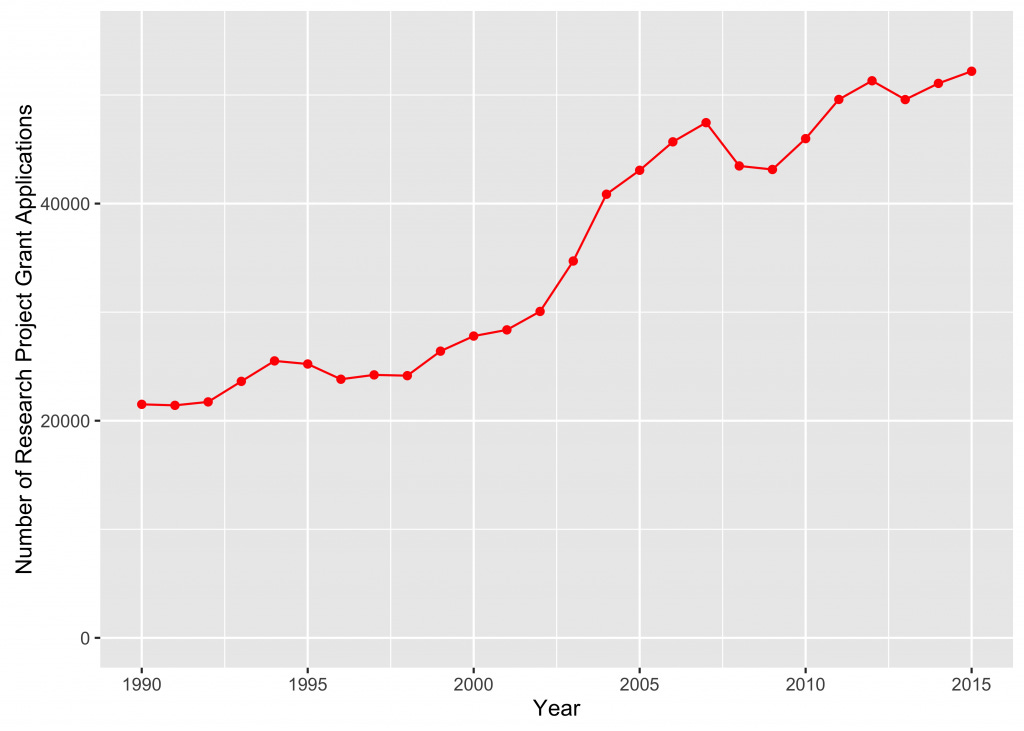🔋Joe Rogan Science
Can capitalism thrive without its heretics?
If you found this article interesting, click the like button for me! I would greatly appreciate it :)
Joe Rogan has the top podcast in the world, receiving more views than nearly all mainstream news networks combined. How can an MMA fanatic/comedian become the world’s utmost source of news and new scientific thinking? Simply put, he searches for the truth. Audiences can tell that Joe doesn’t claim to know much about the subject matter, for many of the experts he brings on. These include academic professors, psychologists, archaeologists, medical professionals, physicists, etc. He is trying to learn more from these people, tends to be skeptical of conclusions, and is fantastic at conversation.
Since he is a curious guy, he brings on folks of differing opinions, even those with radical ones. Whether it be alienated views about the origins of the human race, alternative medicine, or actual aliens, he wants to talk to them. For this reason, many throw the baby out with the bath water, meaning that since he brings on some crazy ideas, everything should be dismissed. Mainstream media are the experts in this. In the US, programs driven by curiosity and the search for truth like this have become extinct, which is precisely why he has become so popular. ‘Joe Rogan science’ is here to stay.
I’m not saying the folks with radical opinions on Joe Rogan are necessarily correct, but Galileo, Copernicus, Darwin, Boltzmann, Pasteur, Tesla, and others were all dismissed in their time. Only after they passed were they considered some of the greatest and most influential scientists in history. Today, these legends would likely not be given roles at Universities, let alone allowed to publish in academic journals. It’s been over a year since I ranted about the societal ills of the modern peer review system. And well, we can’t have that, can we?
I recently came across a piece called, Is Academia Killing Capitalism? by Joseph Francis. It is well worth the read, but I’ll summarize the three main parts. He first discusses the University radicalism in the 1960s, which eventually gave way to an administrative restructuring with the top objective of improving student experience. It then suggests that political debates over scientific funding of the 1970s led the scientific community to hold up the peer review system to maintain their credibility, and “legitimizing its independence from political oversight.” He then discussed the rise of conformism that peer review brought and how it can stifle innovation and may risk capitalism’s success.
…academics would see their career trajectories determined by how many peer reviewed articles they could write. - Joseph Francis [Is Academia Killing Capitalism?]
Francis correctly notes that the main technological advancements today, such as the internet and neural networks developed despite academia, not because of it. I urge you to read last year’s piece called Peer Review, where I discuss what peer review is, its origins, and the misplaced financial incentives.
Overall, the monetary incentives in place both explicit and implicit in research, the fundamental origins of peer review, and the psychological trappings of peer review lead this flawed system to be heralded as a prestigious institution instead of the chains holding back human ingenuity and scientific progress that it is. - Grayson Hoteling [Peer Review]
The easiest first argument is that when the Federal government spends less on research, it will slow down fundamental discoveries. This makes sense to people who don’t think for more than two seconds. The fundamental flaw is that the researcher is awarded not for a scientific breakthrough, but for what gives him the grant. Instead of the smartest scientists in the world deciding what to work on, grant offices are the arbiters of what work is important. There has been a shift to “practical” research as opposed to fundamental studies, which may not have tangible benefits for years to come.
Those who think for a few minutes then show that the share of government funding towards research peaked in the 1960s and has decreased ever since, which must prove why science is faltering. The mistake here is failing to realize the structural economic drivers of the blowout in US federal expenditures since 1970, which I’ve discussed in many prior pieces.
We can see below from the NSF website that spending on academic research grew from $1.8 billion to $76 billion from 1953 to 2021. This represents a 7.22% annual growth rate in spending, which is double the rate of inflation over that time frame. This suggests that spending grew in real terms as well as growing nominally.
The only possible critique of this is that the share of federal funding remained the same while institutional funding increased by 8 percentage points at the expense of other sources. Surely this means that research funding is becoming more privatised, which is good? Normally, I would welcome this, but Universities have become wealthy off federally assured student loans. Ultimately, the money is still coming from the government, I’m afraid.
Public funding for scientific research was a huge political issue in the 1970s. The US was dealing with financial turmoil, inflation, and recession. Research funding was on the chopping block, but politicians were no good at assessing what was worthwhile. As Francis argues, this catalyzed peer review to step in and uphold the reputation of science. This was shortsighted as it is leading to the destruction of science’s reputation.
The reason it occurred was the same reason the transcontinental railroad was built past each other from east/west instead of connecting, to get more government money. The quantity of public funding was not the issue, but public funding itself was. Those reviving NSF and other grants in the 1970s viewed them as existential. Instead of focusing time and energy on scientific innovation, it is on procuring federal funding. Peer review saved funding from the incompetent decisions of politicians, but cursed it to a fate of reliance on federal funding.
Peer review also cursed the scientific community to the whims of groupthink of other academics, therefore perpetuating wrongs and gatekeeping rights. This is the second reason peer review is bad. Just like socialism distorts the incentive structure for productivity, peer review distorts incentive structures to behave alongside the group to avoid excommunication, and to get more papers to further one’s career. If you have radical theories, they won’t get passed peer review, and you could risk tarnishing your legacy in the scientific community. With success and employment judged on the quantity of papers published, this is a death sentence to any ambitious academic.
The peer review system doesn’t allow crazy minds like Copernicus and Darwin to stand a chance. It is exceedingly difficult to do unbiased fundamental science that doesn’t have a relevant application. This brings up the final point, related to the time value of money. Inflation decreases the time horizons of investments as it threatens personal savings sooner as it increases. We live in an era clouded by inflation, with shortening time horizons over time. Academic research is pushed to focus on work that has an application or near-term use, rather than deep science that may be decades away.
Academia is indeed killing capitalism if capitalism requires continuous innovations. Public funding is the root cause of the issue, which catalyzed the formation and fostered the growth of the peer review system. Peer review is far from a capitalist institution today, relying on public funds, enabling groups to gatekeep and control scientific fields, and stifling free thinkers and innovation. Innovation always finds a way, but we can’t have a golden age if the crazy people aren’t allowed anywhere but Joe Rogan’s show. Until next week,
-Grayson
Leave a like and let me know what you think!
If you haven’t already, follow me at TwitterX @graysonhoteling and check out my latest post on notes.
Socials
Twitter/X - @graysonhoteling
LinkedIn - Grayson Hoteling
Archive - The Gray Area
Let someone know about The Gray Area and spread the word!
Thanks for reading The Gray Area! Subscribe for free to receive new posts and support my work.






Another interesting article that broadens the discussion. Thank you for bringing different, well-thought-out perspectives to light. It's always a pleasure to read and think about your work.
We had quite a golden age of research in the quasi government research (post WWII) entities like Bell Labs and Xerox. I suppose those have been replaced by tech companies setting up research gardens next to universities. It seems that for-profit research is a lot more expensive too---an extreme example would be, say, comparing the billions of dollars Amgen spends to get a blockbuster drug to market verses Jonas Salk quietly, and at very low cost relatively, developing a Polio vaccine. Can we get back to altruistic non-profit federal research?